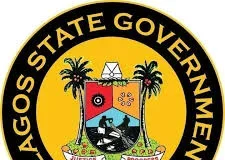South Africa is yet again the biggest economy in Africa, a position it reclaimed from Nigeria.This was attributed to the appreciation of the rand, South Africa’s currency, and the devaluation of the Nigerian naira.
Using the Gross Domestic Product (GDP) at the end of 2015 published by the International Monetary Fund, Bloomberg reported that the size of South Africa’s economy was $301 billion at the rand’s current exchange rate, while Nigeria’s GDP was put at $296 billion.
Bloomberg noted that the rand has gained more than 16 per cent against the US currency since the start of 2016, while in contrast, Nigeria’s naira has lost more than a third of its value.
In afternoon trade wednesday, August 10, the rand firmed by more than a per cent against the dollar, to R13.29.
Despite the switch, Nigeria and South Africa both face the risk of recession, having contracted in the first quarter of the year, according to Bloomberg.
Nigeria’s economy shrank by 0.4 per cent, while South Africa’s GDP contracted by 0.2 per cent. Nigeria has suffered amid low oil prices, while South Africa is sensitive to shifts in the commodity cycle.
“More than the growth outlook, in the short term the ranking of these economies is likely to be determined by exchange rate movements,” an economist at Exotix Partners LLP, Alan Cameron said.
He said although Nigeria was unlikely to be unseated as Africa’s largest economy in the long run, “the momentum that took it there in the first place is now long gone”.
Also, the Head of Research, SCM Capital Limited, Mr. Sewa Wusu, told THISDAY that the challenge of naira devaluation has caused a lot of economic challenges to the country, particularly with respect to the GDP.
“This should give policy makers the drive to rectify the forex challenges. Of course they have done their best by introducing a flexible exchange rate, but the issue is beyond that. The issue currently is about our forex earning potential.
“But I think the government is up to the challenge. I think we need a quick fix on the economy. That would help to support the naira and strengthen the currency,” Wusu added.
The South African Reserve Bank forecasts zero growth for 2016, while unemployment still remains above 26 per cent. In July, South Africa stepped past Egypt as the continents’ second largest economy in dollar terms, having dropped behind the North African country earlier in the year.










